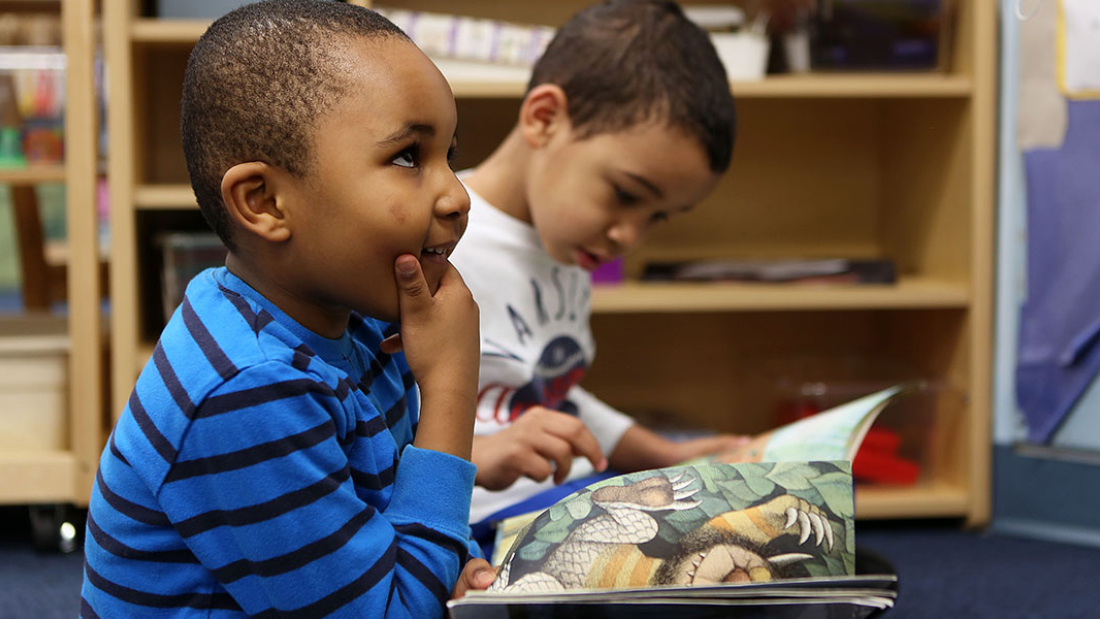So Every Child Can Read

Reading proficiency is crucial for all areas of learning, but more than half of American students struggle to read well by the end of third grade. Starting in 2018, an interdisciplinary team of educators, technologists, developers, researchers, and students got to work to change that statistic. The Reach Every Reader (RER) initiative aims to use research, supportive interventions, and new and emerging technologies to make significant and lasting progress on the crisis in early literacy.
Harnessing emerging research, technology, and expertise in product development, Reach Every Reader is a multi-institutional effort to solve America’s early literacy crisis.
“One of my hopes for Reach Every Reader is that we not only contribute to joyful, equitable, and rich learning environments that support thriving readers, but also that we have a greater understanding of personalized interventions,” said Elizabeth City, senior lecturer and executive director of RER. City and her colleagues are working in five areas of focus:
- creating engagement at home for preschool-aged children and their families;
- developing a screener and assessment for K–3 students to help identify areas of strength and weakness and possible personalized supports;
- developing a content-rich intervention for the same age group;
- offering tools and supportive resources for educators, family members, and other adults who work with children;
- and making a commitment to collaboration and scaling solutions for wide-spread impact.
Funded by the Chan Zuckerberg Initiative (CZI), Reach Every Reader is a partnership between HGSE, the Massachusetts Institute of Technology’s Integrated Learning Initiative (MITili), and the Florida Center for Reading Research (FCRR) and College of Communication & Information (CCI) at Florida State University. Combining the RER team’s expertise in literacy, cognition, early learning, software development, technology and other areas, the initiative has already produced several apps designed to foster conversations between parents and young children. These apps help broaden children’s vocabulary, model sustained back-and-forth conversations, and promote engagement with new words and concepts. Many other tools and resources are currently in development, with remote testing in progress around the country.
“I believe strongly in literacy as freedom,” City said. “Being able to read doesn’t protect you from the worst acts of racism and violence in society. However, being able to read does unlock lots of opportunity and possibility, both in school and beyond school. I think one way of exercising justice is to make sure every child can read.” – Katie Noah Gibson
Learn More and Connect
Learn more about the Reach Every Reader initiative.
Read about Small Wonders, an early literacy app developed by HGSE faculty in conjunction with Reach Every Reader.
Explore CBM at Home, an at-home tool for parents, developed in response to COVID-19, that can be used to screen K–3 children for reading risk.
